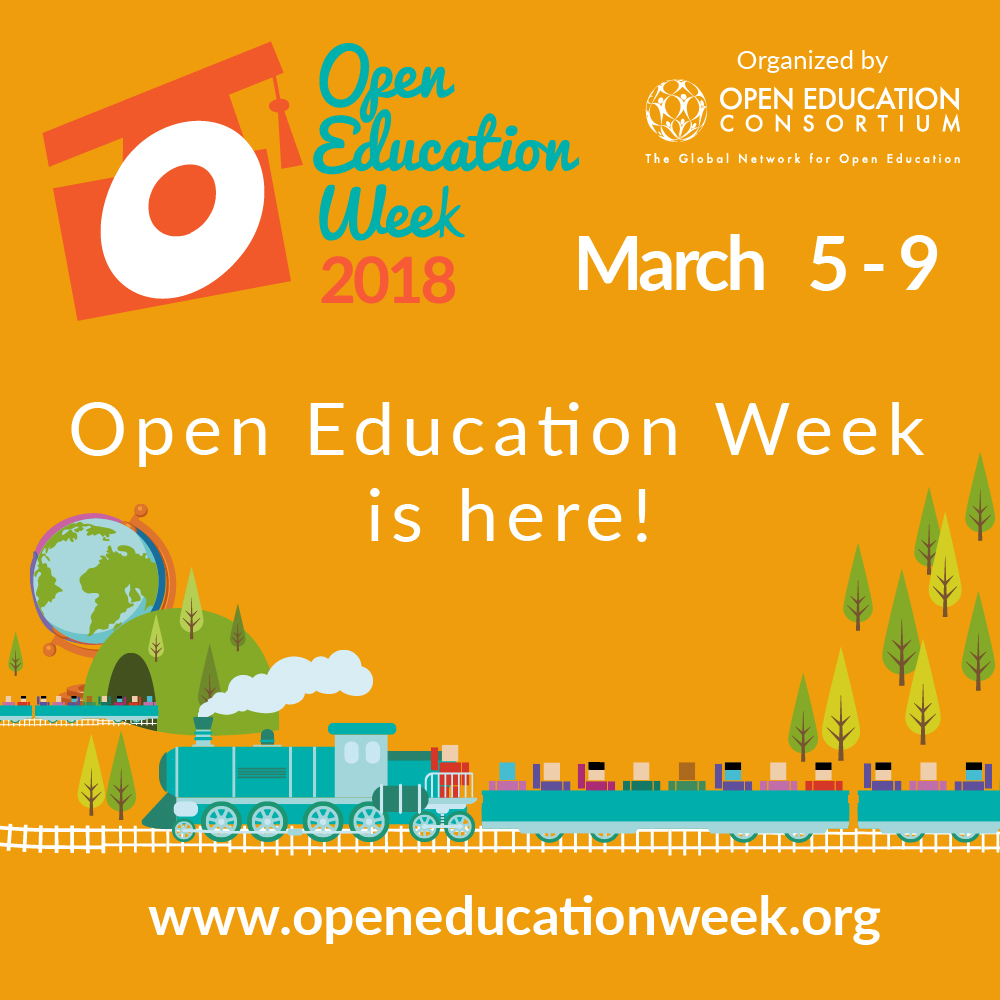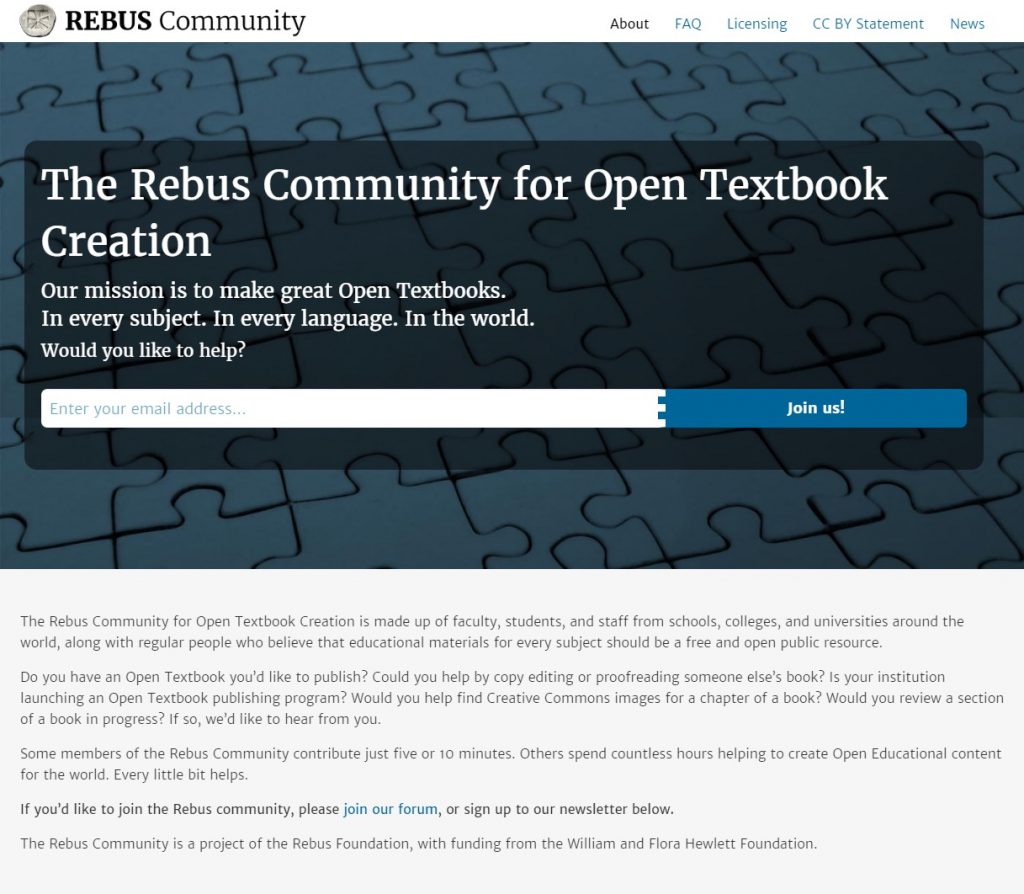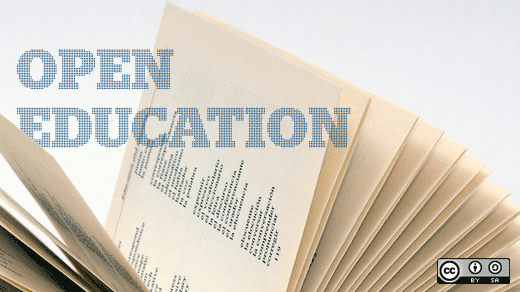This week is Open Education Week, a yearly celebration designed to raise awareness about open educational resources. Open educational resources (OER) are teaching and learning materials that are free to read and reuse. Examples of OER include videos, problem sets, slides, and textbooks. At Temple, faculty across the schools and colleges are using OER in their classes. Faculty often assign OER in order to make their course more affordable for students–by choosing an open textbook instead of a commercial textbook, for example, faculty can potentially save students hundreds of dollars a semester. Another benefit for faculty is it that OER are openly licensed, which means that faculty can remix and build upon the content, customizing the material to meet the needs of their particular class.
One Temple faculty member who is experimenting with using an open textbook in his classes is Assistant Professor of Chemistry Graham Dobereiner. Dr. Dobereiner teaches General Chemistry, a series of two semester-long courses for science majors, pre-professional students, and others in science related fields. In General Chemistry, students have a choice between using two different textbooks: Chemistry, an open textbook published by OpenStax and available for free online, or Principles of Chemistry, a traditional textbook published by Pearson. Dr. Dobereiner agreed to answer a few of our questions about how this works:
You recently surveyed your students to find out their attitudes towards and use of both the OpenStax textbook and the Pearson textbook. What did you find?
Among the 172 students that responded to the survey, course performance was independent of the choice of book. Use of a textbook – any textbook – correlates with performance in the course. Students who reported that they completed all readings received higher grades, regardless of textbook used.
Attitudes towards the open textbook (OpenStax) were mixed. Adoption rates were high: 75% of respondents used OpenStax at some point during the semester and 59% only used OpenStax. But when asked to give advice to students in next year’s class, 40% recommended OpenStax, 24% Principles of Chemistry, and 28% both textbooks.
Were you surprised by these results?
Yes, some results were surprising. We often hear students are hesitant to purchase a traditional textbook, particularly if it isn’t required for a course. But 30% of survey respondents read from the traditional textbook at some point during the semester. 17% of the respondents only read from the traditional textbook, and in general they showed greater satisfaction with their textbook choice – even though their course performance matched the rest of the class.
Other results were sobering. Only 14% of respondents completed all of the assigned readings, and only 10% of OpenStax readers did so.
Will the results of the survey have any impact on how you teach the course next year?
Yes, it may. I want to look at strategies to boost student textbook use. The course syllabus may need to be rearranged; it is currently organized around the traditional textbook, and so the assigned OpenStax readings were out of order, which may have reduced student textbook use.
What would you tell other faculty who are considering using an open textbook?
Free, open textbooks have their advantages, but they are not a panacea. I would encourage faculty to critically evaluate an open textbook just as they would any traditional text.
Thank you Dr. Dobereiner!
Are you interested in learning more about using open textbooks in the classroom? Sign up for one of our upcoming workshops: March 15, 12:00-1:00 pm and March 21, 3:30-4:30. The first 10 instructors who register and write a brief review of an open textbook that is accepted for publication by the Open Textbook Library will receive a $200 stipend.




